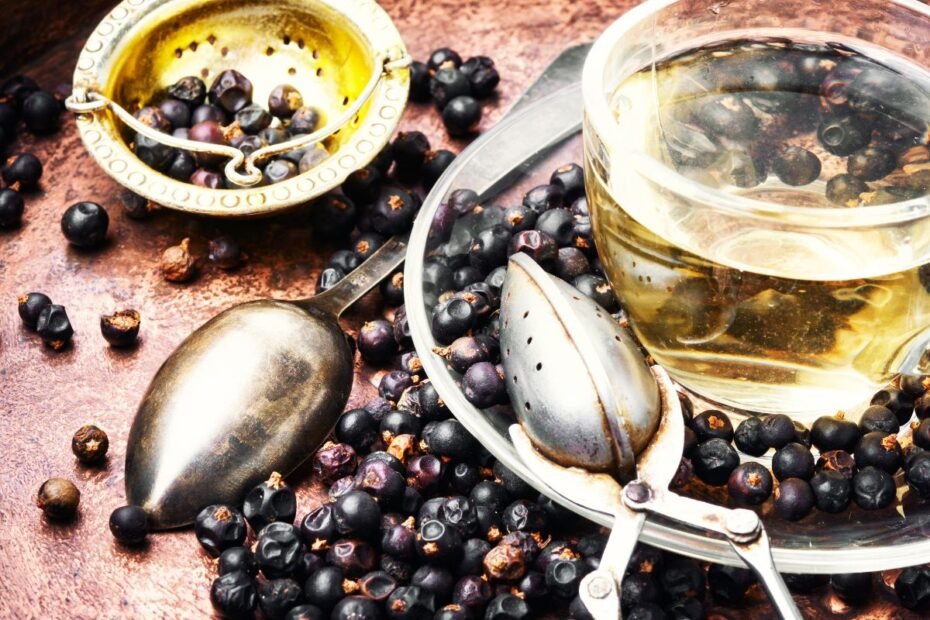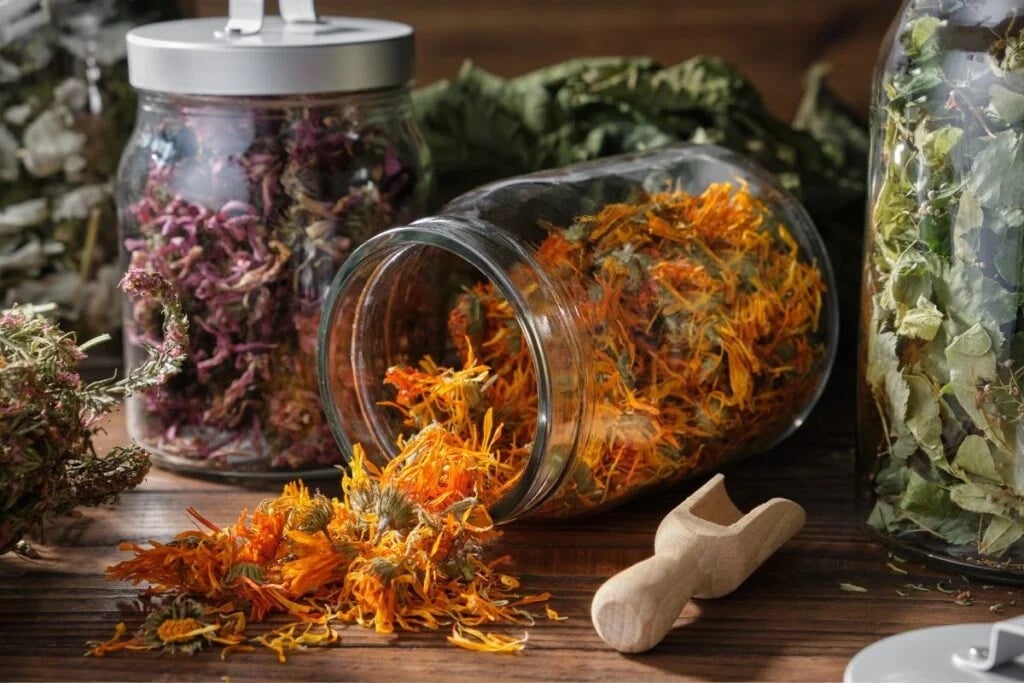In the world of tea, brimming with diverse flavors and aromas, juniper berry tea stands out as a true gift of nature. This age-old beverage remains a unique way to enjoy not only a delicious drink but also a healthy one. The history of juniper tea dates back to ancient times when natural resources were used as food and medicine. Typically, people make juniper berry tea from dried or fresh fruits with a distinctive taste. If you feel unwell or have an upset stomach, juniper berry tea benefits include curing these illnesses!
What Does Juniper Berry Tea Taste Like?
The taste of juniper berry tea is described as closely resembling its aroma! It features sharp citrusy notes blended with hints of pine—an experience not easily replicated in other teas. Imagine an aroma that transports you to the depths of a forest with a flavor that brings a refreshing burst to your palate.
Harvesting and Storing Juniper Berries
If you plan to make juniper berry tea and want to harvest your berries, it sounds like a nice idea to taste them first to ensure they are fully ripe. Ripe berries typically have a pleasant flavor and may even be slightly sweet. You can harvest these berries from late autumn through winter or early spring. If you like to store the berries for later, you can dry or freeze them. This way, they retain their flavor for at least a year!
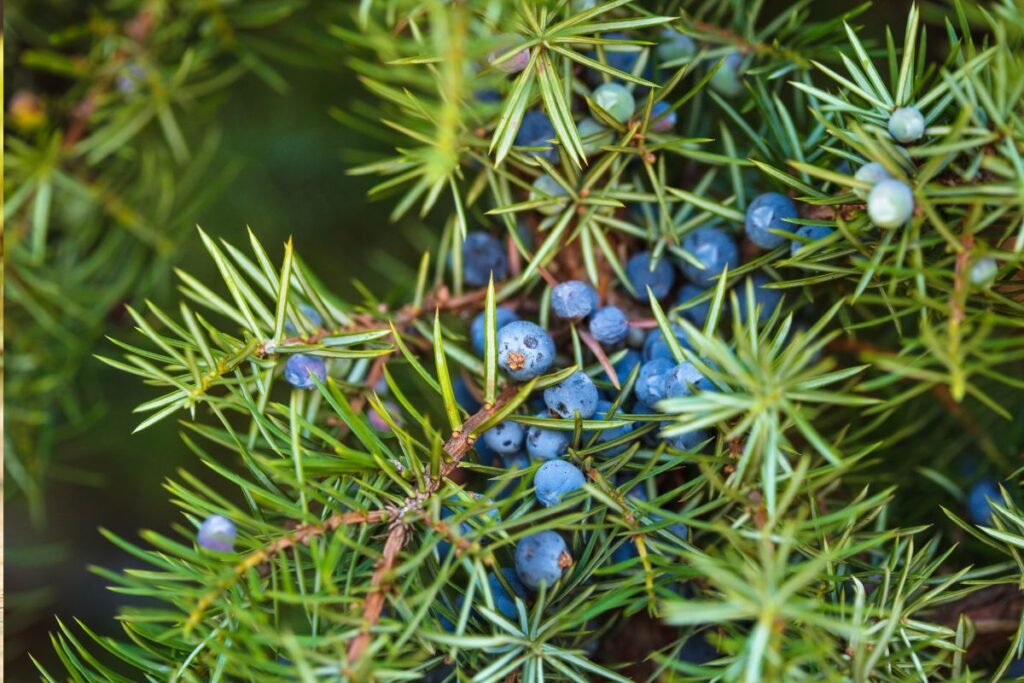
Juniper Berry Tea Benefits
Juniper berry tea benefits due to its rich antioxidants and vitamins A and C capacity. Antioxidants help combat free radicals in the body, which can lead to cancer and heart disease. Meanwhile, vitamins A and C strengthen the immune system, helping prevent colds and enhancing the body’s ability to fight infections.
Treating Colds and Coughs with Juniper Berry Tea
A recent study at the University of Connecticut explored natural remedies and herbs for combating the flu. And guess what? Consuming ginseng, juniper, and ginger at least three times a week can reduce the likelihood of catching the flu by up to 65%! Juniper berries contain an antiviral compound (deoxypodophyllotoxin) that may affect upper respiratory tract infections, colds, and the flu.
Relief for Stomach Issues
Research into the benefits of juniper has revealed that these berries are a natural remedy for digestive ailments. They act like a harmonious blend of the best herbs and spices, soothing the stomach by stimulating the glands responsible for producing bile and digestive juices, thus improving digestion.

Diabetes Prevention
Studies have found that juniper berry tea benefits in reducing the risk of type 2 diabetes by regulating blood sugar levels and making them more stable. However, people taking diabetes medications should avoid juniper berries, as they can excessively lower blood sugar levels.
Gout Treatment
Gout is a type of arthritis that primarily targets the joints. It is more common in men than women and usually affects individuals over 40. Gout may manifest as isolated flare-ups or become a chronic condition, causing periods of intense pain, stiffness, swelling, and redness around the joint. Juniper berry tea treats gout due to its diuretic properties. Research shows that juniper berries increase urine production, helping flush uric acid from the body.
Kidney Stone Treatment
Juniper berry tea benefits in preventing kidney stones effectively. Studies indicate that juniper berries act as a diuretic. This property promotes increased urine production, toxins, and waste elimination from the body. Additionally, they may prevent kidney stone formation by stimulating bile production, which helps remove substances that can cause stones.
Urinary Tract Infection Treatment
If you suffer from a urinary tract infection (UTI), juniper berries may offer relief. Research shows that the antibacterial properties of juniper berries, combined with their diuretic effects, make them excellent for combating UTIs.
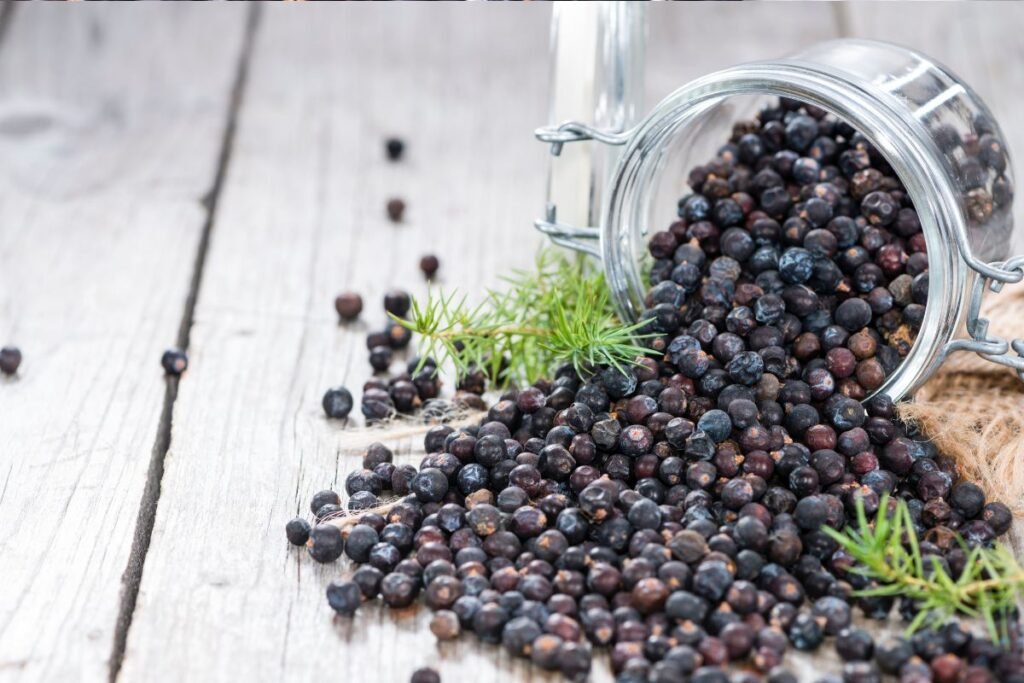
Juniper Berry Tea for Colds
Because juniper berries are highly potent, experts recommend drinking no more than one cup of this tea during the day and for no longer than a week. The combination of mint, lemon, and honey has juniper berry tea benefits unique, soothing, and healing properties.
Ingredients:
- 1 teaspoon dried juniper berries
- 1 cup of water
- 2 mint leaves
- A slice of lemon
- Honey (to taste)
Lightly crush the dried juniper berries and mint leaves to release their aromas and oils. Pour a cup of hot water over the crushed juniper berries and mint. Cover and let the tea steep for about 5–10 minutes. Strain the tea, add honey and lemon, and drink it warm. You can adapt the water amount to suit your taste. Be cautious with the quantity of berries in your teacup, as they are strong.
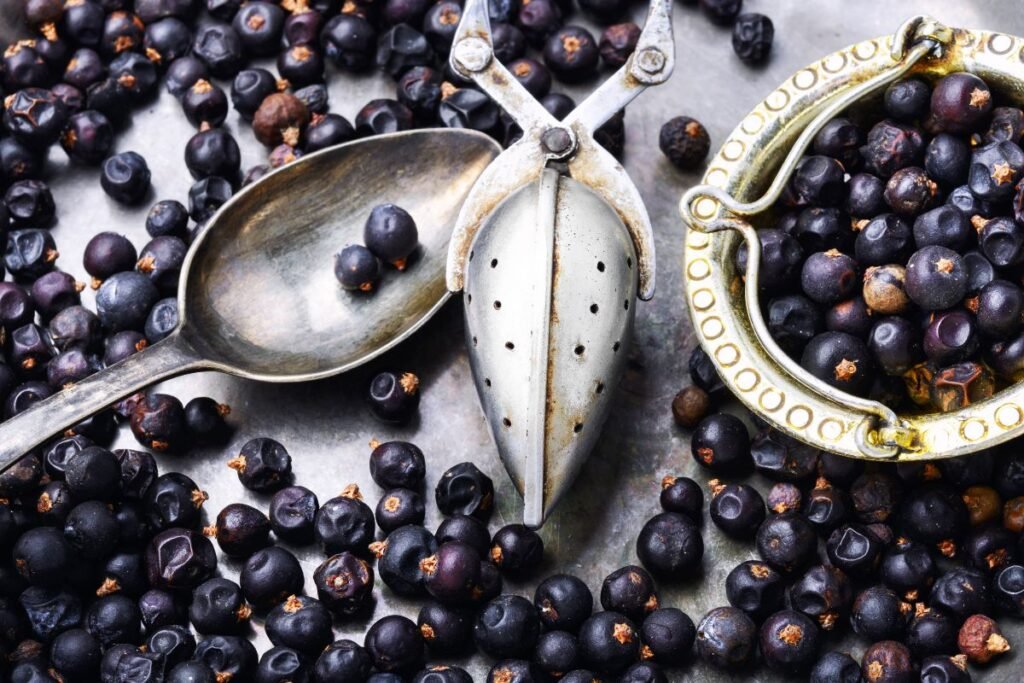
Juniper Berry Tea for Stomach Pain
You may ease stomach aches with natural herbs and juniper berries. This recipe combines several healing herbs traditionally used to soothe stomach issues.
Ingredients:
- 1 teaspoon dried juniper berries
- one teaspoon of chamomile flowers
- 1 teaspoon peppermint leaves
- 1 liter of water
- Honey or lemon juice (to taste)
Place the chamomile flowers, dried juniper berries, and peppermint leaves into a teapot and pour boiling water over them. Let the herbs and berries steep for 5–10 minutes until the tea develops a vibrant flavor. If desired, add a spoonful of honey or a dash of lemon juice. It’s best enjoyed warm.
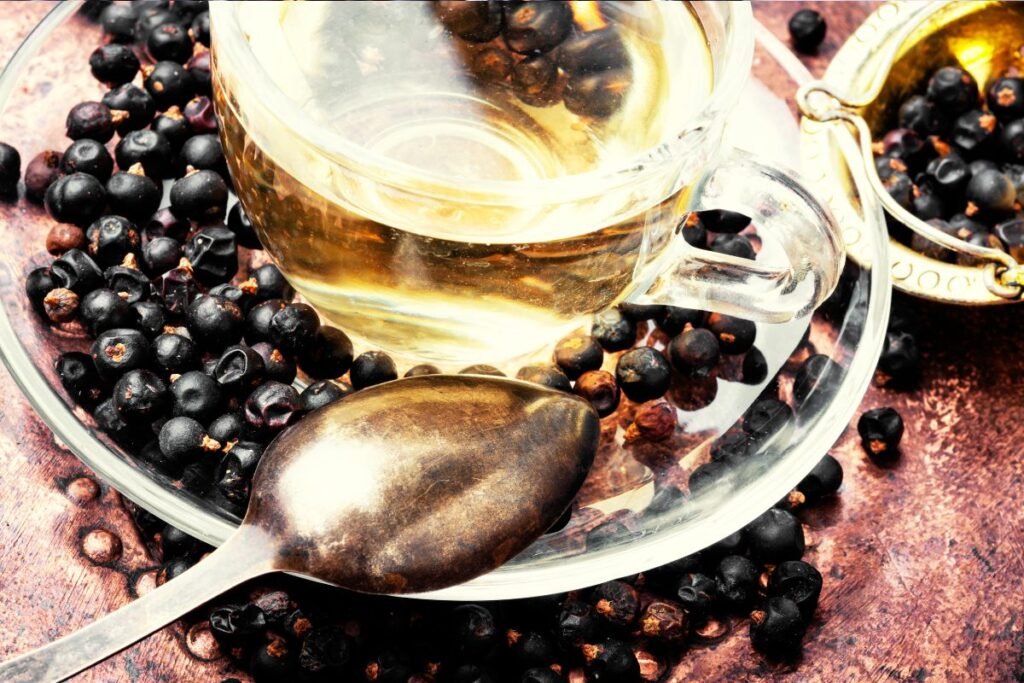
Juniper Berry Tea for Cough Relief
Combining juniper berries and linden flowers creates a delicious tea and is effective in soothing coughs. These natural ingredients help calm the throat and reduce coughing.
Ingredients:
- 1 teaspoon dried juniper berries
- one teaspoon of dried linden flowers
- 1 liter of water
- Honey (to taste)
Place the dried juniper berries and linden flowers in a teapot and pour boiling water over them. Let the mixture steep for 5–10 minutes. Pour into a cup, add honey, and enjoy.
Is Juniper Berry Tea Suitable for Everyone?
Juniper stimulates smooth muscle contractions, so pregnant or breastfeeding women should not consume this tea. Additionally, avoid juniper tea if you are taking prescription medications for diabetes, glucose regulation, or hypoglycemia.
People with kidney issues, such as inflammation, should also avoid juniper berries and juniper oil. Even standard doses of juniper berries can strongly affect the kidneys and increase their workload. If you are on any prescription medications, consult a healthcare professional before using juniper products.

Juniper Berries: Not Just for Tea, But Also for Cooking
Juniper berries are an excellent spice for food. In ancient Egypt, Greece, and Rome, juniper berries were popular and widely used in cooking.
Juniper pairs wonderfully with venison, lamb, and even pork. You can add dried juniper berries to chili stews, giving them a rustic, robust flavor. Juniper is also an excellent seasoning for roasting duck.
- Pair juniper berries with fruits like apples or dried plums in your dishes to highlight the light, citrusy flavor.
- Before cooking meat, rub crushed juniper berries directly onto it.
- For a strong juniper aroma and flavor, crush fresh berries before adding them to sauces or marinades.
- If you prefer a more subtle aroma, lightly toast the berries before use. Be careful not to burn them because they will taste bitter.
Sources:
- https://www.webmd.com/vitamins-and-supplements/what-to-know-juniper-berries
- https://pubmed.ncbi.nlm.nih.gov/37186895/
- https://www.indigo-herbs.co.uk/natural-health-guide/benefits/juniper-berry#
- https://www.wnyurology.com/content.aspx?chunkiid=21780
- https://truefoodfact.com/beverage/juniper-berry-tea/
Associative photos © Canva.
